BGS joins the UK Centre for Seabed Mapping to raise data and mapping standards
BGS is the latest UK Government organisation to join the newly unveiled UK Centre for Seabed Mapping, helping to boost marine data and mapping standards.
25/08/2022 By BGS Press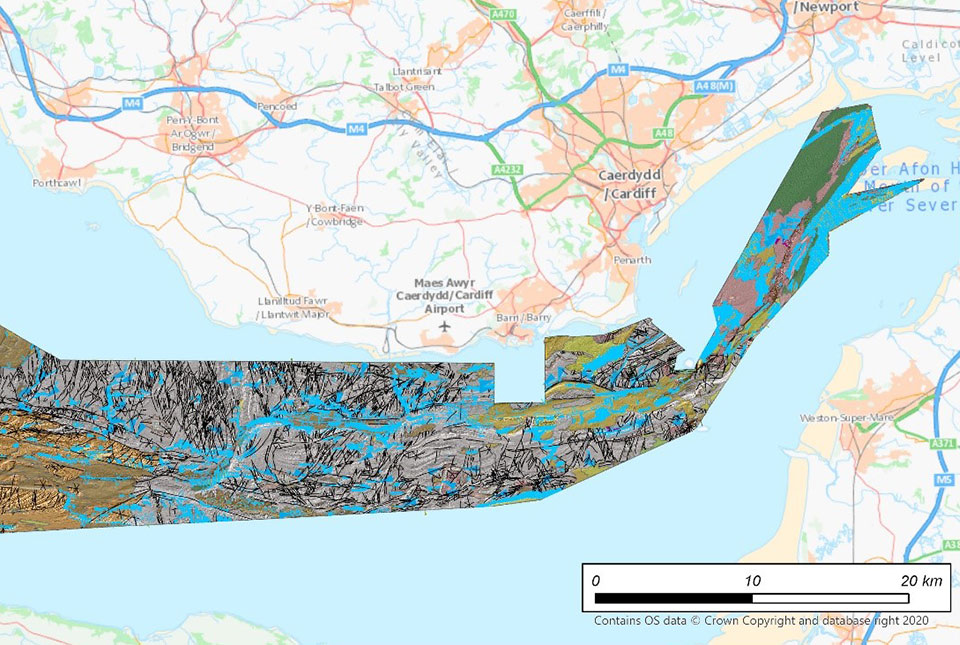
BGS is one of the latest Government organisations to join the newly unveiled UK Centre for Seabed Mapping (UK CSM), helping to boost marine data and mapping standards.
The UK CSM is a new initiative designed to increase the global coverage, quality and accessibility of seabed mapping data through national collaboration. The centre is administered by the UK Hydrographic Office (UKHO) and it aims to support a more integrated marine geospatial sector for the UK.
Quality marine geospatial data is essential for almost every activity undertaken in the marine domain, including:
- maritime trade
- environmental and resource management
- shipping operations
- national security and infrastructure
BGS has signed a memorandum of understanding (MoU) with UKHO on behalf of UK CSM, outlining UKHO’s commitment to being a member of UK CSM. Under the agreement, BGS will work collaboratively with a number of UK Government organisations in a coordinated approach to the collection, management and access of seabed mapping data.
UK CSM and its coordinated approach is essential to enable a more unified voice and raise the profile of seabed mapping.
BGS has a rich history of managing marine data and seabed geological mapping. This this partnership will ensure UK CSM benefits from impartial geological expertise, data and information to help increase the coverage, quality and access of seabed mapping data collected both by public funded projects and through industry. This will significantly improve future understanding of the UK seabed.
Mary Mowat, BGS Data Manager.
The MoU sets out ways of working between BGS and UKHO/UK CSM to support the UK CSM’s activity and describes key areas for collaboration, including data sharing, information reporting and policy input.
The core focus of the partnership will be bathymetry, and its associated data, in order to improve the foundation dataset within the marine environment. The partnership will also provide opportunities to collaborate around other elements of seabed mapping through coordination and data sharing, whilst working towards more unified data collection standards.
It is anticipated that UK CSM will also provide a forum to stimulate and promote further application of seabed data, e.g. geological mapping of the seabed, which is becoming a key resource to underpin activities like offshore renewable development, potential carbon capture and storage (CCS) projects and the management of dynamic marine ecosystems.
Dayton Dove, BGS Marine Geologist.
BGS will also contribute to some of UK CSM’s three newly established working groups, which include national data collaboration, international data collaboration, and data collection standards.
BGS manages marine data, information and material as part of the National Geoscience Data Centre (NGDC), the Marine Environment Data and Information Network (MEDIN) geology and geophysics data archive centre (DAC) and the National Geological Repository (NGR).
Further reading
- BGS marine data webpages
- View BGS geological maps and access data via the Offshore GeoIndex
- Access bathymetry data via the ADMIRALTY Marine Data Portal
- Find and access all types of UK marine data via the central MEDIN Portal
Contact the BGS Press Team via:
Telephone: +44 (0)7790 607 010
(Please note this number does not accept text messages)
Email: bgspress@bgs.ac.uk
Our press office runs an out-of-hours service and will respond to your enquiry as soon as we can. If you are not a member of the media, please contact general enquiries on 0115 936 3143 or email enquiries@bgs.ac.uk
Relative topics
Related news
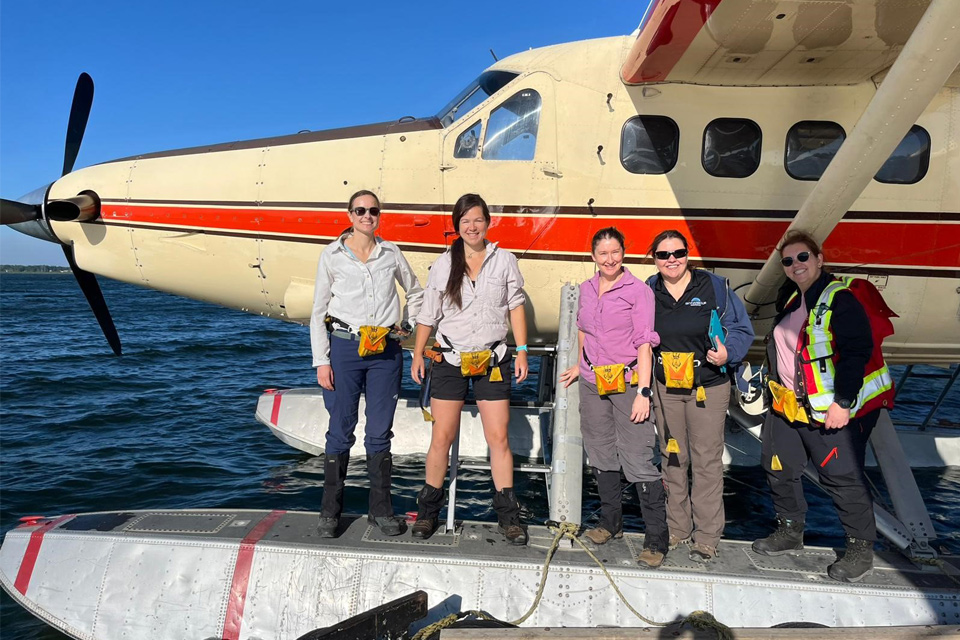
Funding awarded to UK/Canadian critical mineral research projects
08/07/2025
BGS is part of a groundbreaking science partnership aiming to improve critical minerals mining and supply chains.
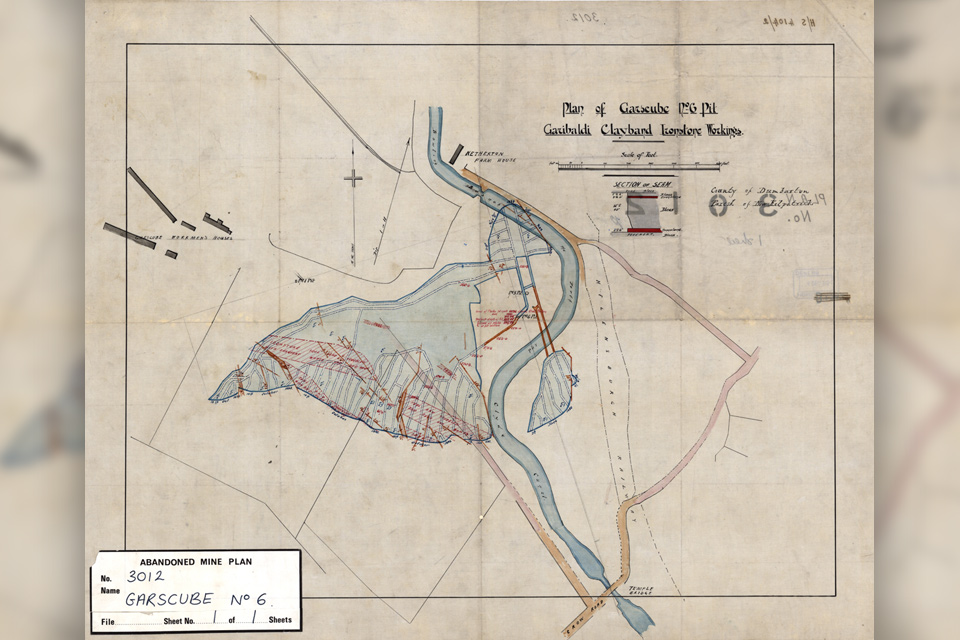
Release of over 500 Scottish abandoned-mine plans
24/06/2025
The historical plans cover non-coal mines that were abandoned pre-1980 and are available through BGS’s plans viewer.
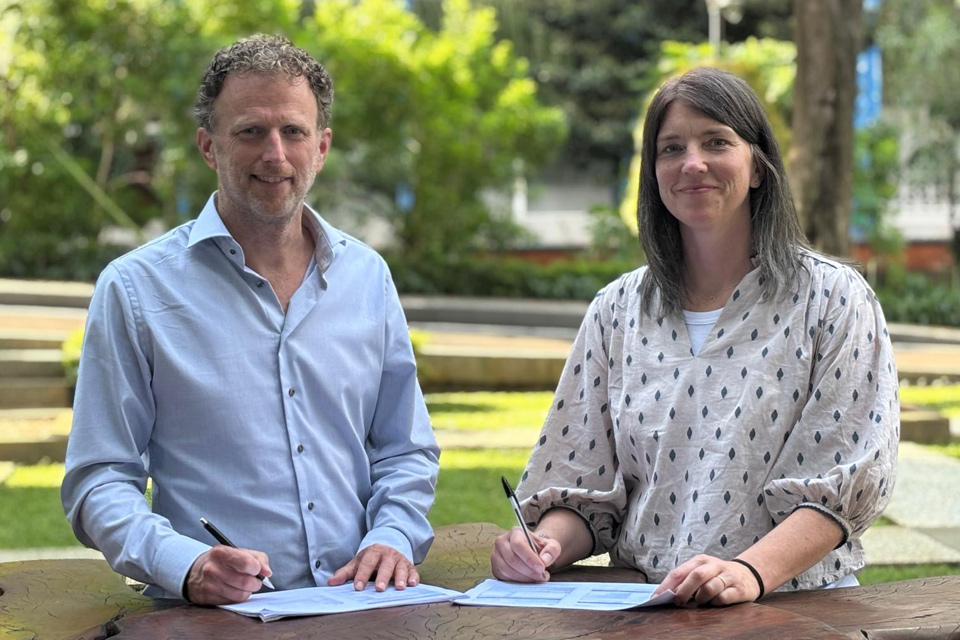
New collaboration aims to improve availability of real-time hazard impact data
19/06/2025
BGS has signed a memorandum of understanding with FloodTags to collaborate on the use of large language models to improve real-time monitoring of geological hazards and their impacts.
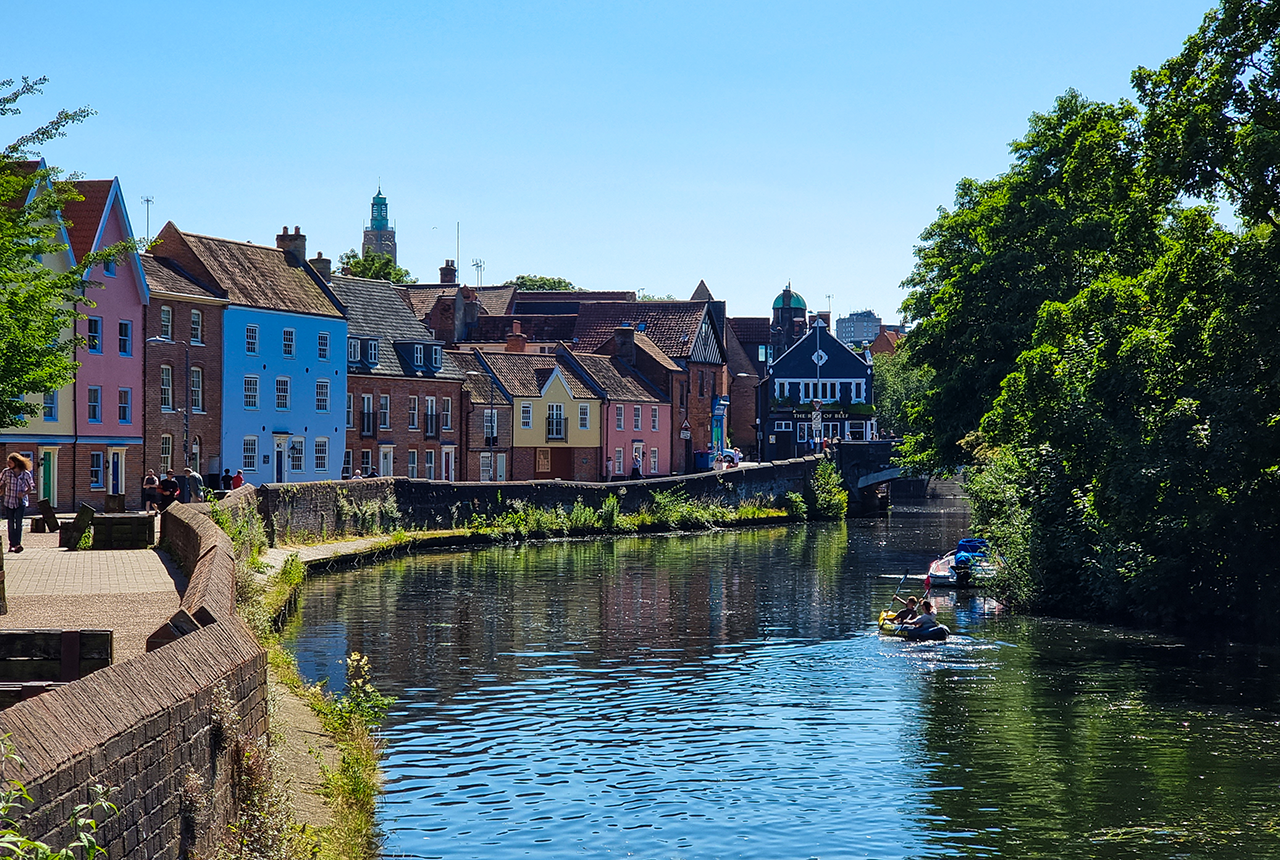
Modern pesticides found in UK rivers could pose risk to aquatic life
17/06/2025
New research shows that modern pesticides used in agriculture and veterinary medicines have been found for the first time in English rivers.

Goldilocks zones: ‘geological super regions’ set to drive annual £40 billion investment in jobs and economic growth
10/06/2025
Eight UK regions identified as ‘just right’ in terms of geological conditions to drive the country’s net zero energy ambitions.
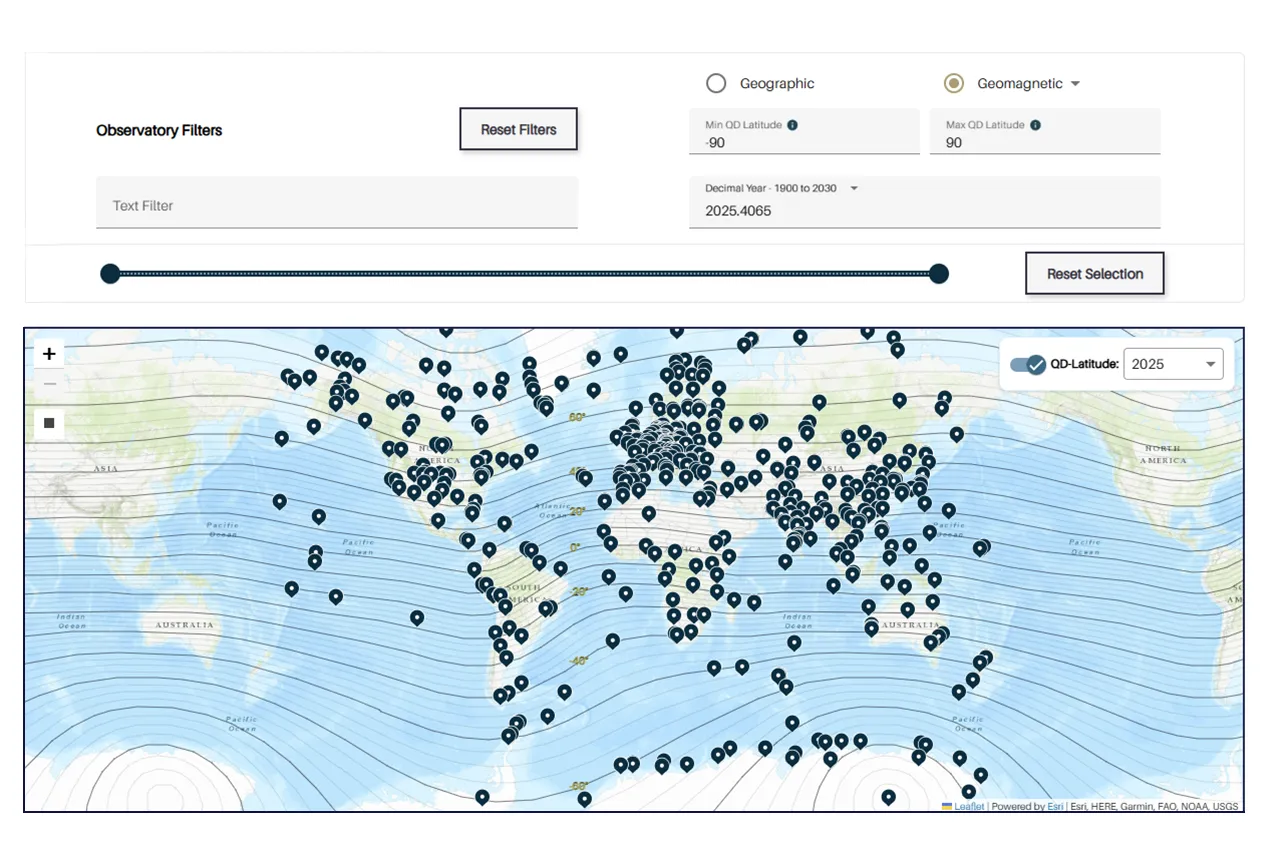
Upgraded web portal improves access to geomagnetism data
02/06/2025
BGS’s geomagnetism portal, which holds data for over 570 observatories across the world, has received a significant update.

BGS digital geology maps: we want your feedback
29/05/2025
BGS is asking for user feedback on its digital geological map datasets to improve data content and delivery.

What is the impact of drought on temperate soils?
22/05/2025
A new BGS review pulls together key information on the impact of drought on temperate soils and the further research needed to fully understand it.
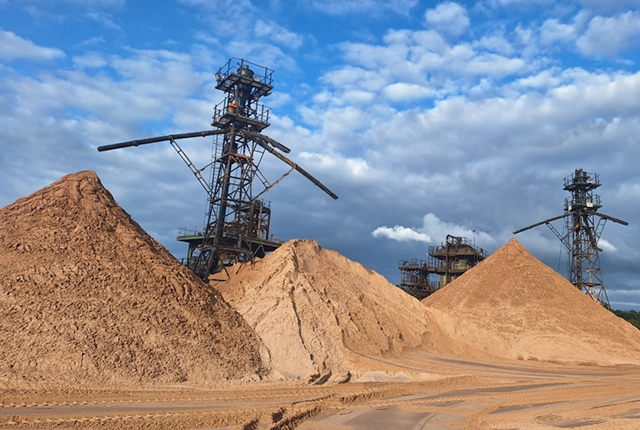
UK Minerals Yearbook 2024 released
21/05/2025
The annual publication provides essential information about the production, consumption and trade of UK minerals up to 2024.

BGS scientists join international expedition off the coast of New England
20/05/2025
Latest IODP research project investigates freshened water under the ocean floor.

New interactive map viewer reveals growing capacity and rare earth element content of UK wind farms
16/05/2025
BGS’s new tool highlights the development of wind energy installations over time, along with their magnet and rare earth content.

UKRI announce new Chair of the BGS Board
01/05/2025
Prof Paul Monks CB will step into the role later this year.



